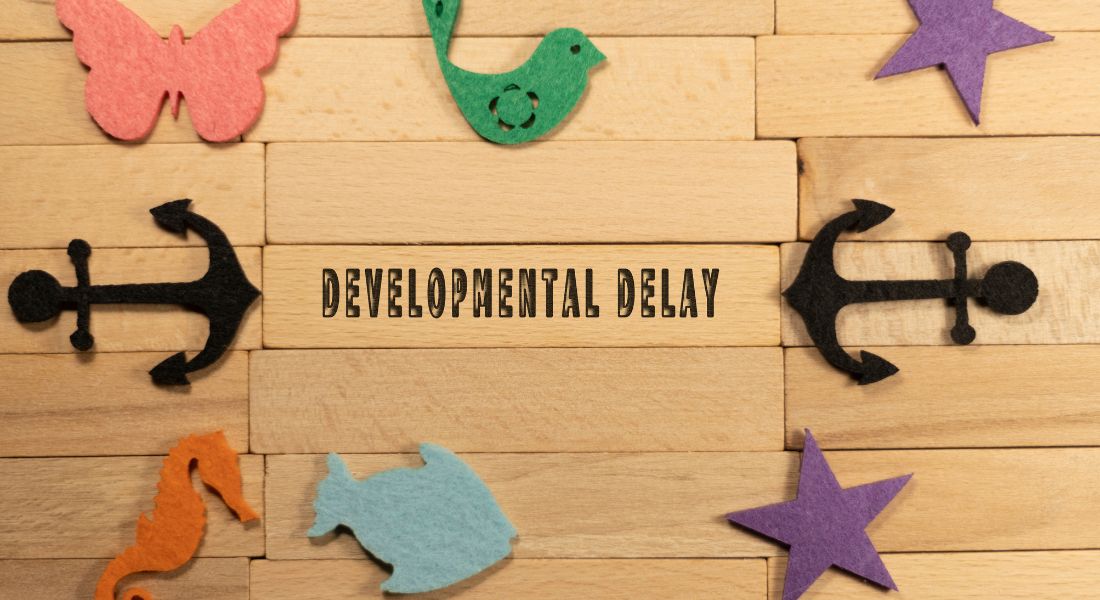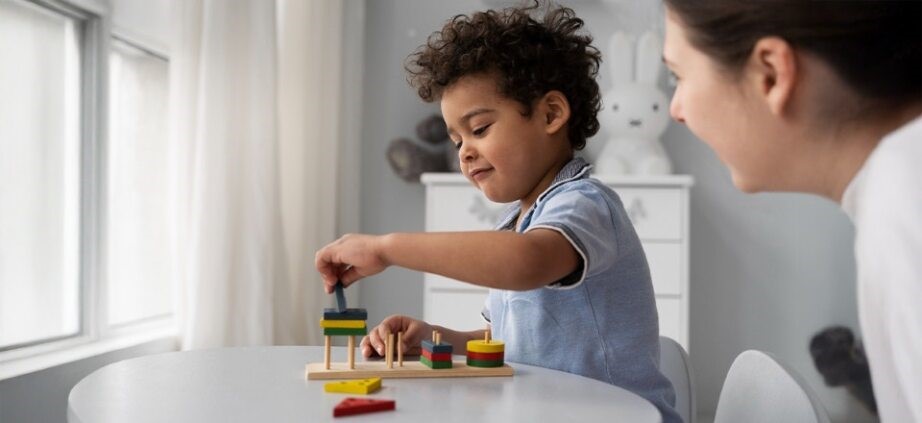Categories
Developmental Delay in Children : Causes and Treatment
Nov 10, 2022
Every child has their own developmental milestones. Temporary delays are normal and no cause for alarm. However, if your child has multiple delays, it can be a sign of developmental delay that calls for specialized child care. This is a condition in which a child has a delay in reaching thinking, language, and motor skills milestones.
There can be a number of factors responsible for this developmental delay including heredity, problems during pregnancy, and preterm birth. In some cases, the exact cause will never be determined. If you suspect that your child is going through a developmental delay, you should visit a child developmental pediatrician at a children’s hospital. It can be a sign of an underlying condition that could be impeding your child’s progress. The importance of early intervention with the help of a speech and language therapist cannot be overstated. Here are some of the most common delays that can help in early intervention:
1. Motor skill delay (fine and gross)
This includes small movements like using a crayon or holding a toy as well as large movements like throwing a ball, climbing stairs, or jumping. Every child progresses at a different rate. However, by 3 months old, they should be able to lift their heads. By 6 months they must be able to sit using some support and walk before they turn 2. Before they turn 5, they should be able to use a spoon and fork and stand on foot for more than 10 seconds. Managing developmental delays may require treatments like physiotherapy. For this, you need to visit a developmental pediatrician near you in Bangalore. Here are some signs that can help in determining if there is any delay in motor skills development:
Stiff legs and arms
Loose or floppy limbs and trunk
Inability to sit by 9 months old
Limited movement in legs and arms
Inability to bear weight on legs
Can’t stand up before turning 1
Involuntary reflexes dominate over voluntary movements
2. Language and Speech delay
The best time for learning language and speech is during the first three years. It is during this time when psychology comes into play and the brain starts developing and maturing. The process of language learning starts when at 6 months of age, an infant can recognize sounds. When they are 12 to 15 months old, they should be able to use a few simple words, even if they are unclear. By the time they are 18 months old, toddlers start saying several words. They are able to make short sentences before turning 3.
It is important to note that there is a difference between language and speech delay. In the language delay, a child is not able to understand what the other person is saying. They are unable to express their thoughts and need the help of a speech therapist Hyderabad. In the speech delay, children aren't saying enough words for their age. If this is the case for your child, you need to take them for speech therapy in Bangalore.
In some cases, the reason behind language and speech delay is hearing. So, during diagnosis at Rainbow Children’s Hospital, a hearing test is performed as well.
FAQs 1. What is the cause of the developmental delay? Developmental disabilities usually occur before the baby’s birth. In other cases, it can be caused due to an infection or an injury. Pinpointing the exact cause of developmental delay is difficult. Some conditions are genetic like Down’s syndrome. Some others are caused due to infections and other issues during pregnancy. It can be also a symptom of another medical condition like: Autism Spectrum Disorders (ASD) Landau Kleffner syndrome Genetic disorders like the fragile X syndrome and Down syndrome Cerebral palsy Myopathies like muscular dystrophies Fetal alcohol spectrum disorders 2. What will happen when my child reaches adulthood? To help your child live a rewarding life as an adult, you need to do transition planning for child safety and consult with a speech therapy near you regularly. The best time to start this is when they are getting close to adulthood when they are 14 years old. At age 16, you need to determine how your child will be transforming into the community. You need to make your child as independent as possible. Make sure to include your child in making the transition planning process.
FAQs 1. What is the cause of the developmental delay? Developmental disabilities usually occur before the baby’s birth. In other cases, it can be caused due to an infection or an injury. Pinpointing the exact cause of developmental delay is difficult. Some conditions are genetic like Down’s syndrome. Some others are caused due to infections and other issues during pregnancy. It can be also a symptom of another medical condition like: Autism Spectrum Disorders (ASD) Landau Kleffner syndrome Genetic disorders like the fragile X syndrome and Down syndrome Cerebral palsy Myopathies like muscular dystrophies Fetal alcohol spectrum disorders 2. What will happen when my child reaches adulthood? To help your child live a rewarding life as an adult, you need to do transition planning for child safety and consult with a speech therapy near you regularly. The best time to start this is when they are getting close to adulthood when they are 14 years old. At age 16, you need to determine how your child will be transforming into the community. You need to make your child as independent as possible. Make sure to include your child in making the transition planning process.











